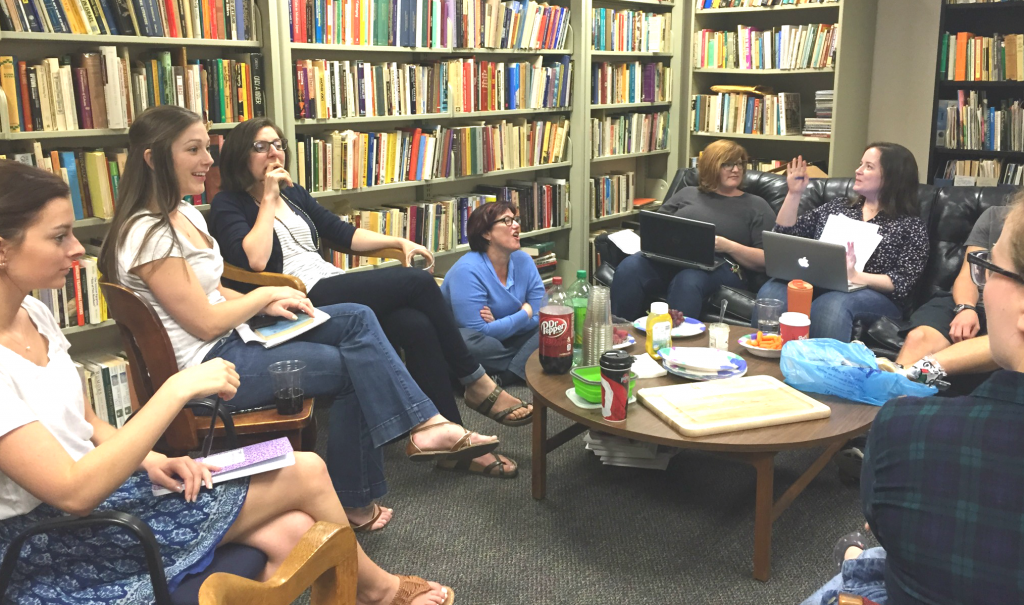
Group discussion at Appalachian Project meeting.
Accents or dialects are one of the most important ways that people signal belonging to a place or a community. For some people, though, including many from Appalachia, these marks of belonging can also prompt unfair judgements from others about everything the speaker’s intelligence to their personality.
Language bias is often treated differently than other kinds of discrimination. Many people who pride themselves on their open-mindedness make an exception for language, calling themselves the “grammar police” or bragging about their “language pet peeves”. The idea one often gets is that disliking how someone else talks is a good thing because it shows knowledge or education.
The reality is that there’s no objective right way to talk. More than that, judgements about “incorrect” language forms can’t be separated from bias about the people who use those forms, because that’s where they come from. Language researchers have have lots of evidence that the speech you like best (or least!) comes from your opinions of speakers, or from years and years of other people’s opinions building up. Some work has even suggested that what you think about a person can influence how you hear their speech. For example, Donald Rubin and his colleagues have shown that a face (Asian-appearing or white-appearing) can change how students hear a lecture. Students seeing the Asian-appearing face not only thought they heard an accent that wasn’t there, they understood less because of the accent that wasn’t there!
In the US, people who grow up in communities where many people use speech called “uneducated” or “incorrect” may follow a few different paths. They may speak the ways they hear around them because they don’t interact with “correct” speakers often enough to fully pick up their patterns. Some people who do have that access may stick to their communities’ way of talking on purpose, rejecting the negative label put on their speech by others. This can invoke costs, like not getting a job or being targeted for jokes or criticism. Others may shift to higher-prestige ways of talking, consciously or unconsciously adapting to the pressure. Some will develop two “voices”, allowing them to code-switch as needed. Learning to code-switch sometimes develops easily and naturally, and sometimes takes a lot of work, depending on the individual and their experiences.
All of these responses are understandable, and we can’t really say which one is right or wrong for a given person. But we can say that one thing is wrong: the idea that the speech found in Appalachia is inherently incorrect, lazy or uneducated. It’s just not accurate, and it hurts people.
Some linguists have been working to support speakers from marginalized communities learn more about their speech and push back against stigma. Check out these resources for more information:
Kathryn Campbell-Kibler is an Assistant Professor in the Department of Linguistics who work focuses on sociolinguistics and whose interests include language variation, with an emphasis on the role of the listener in variation; language and sexuality; language and the construction of masculinity; and the role of language in the formation and performance of identity.
References
[1] D. L. Rubin. Nonlanguage factors affecting undergraduates’ judgments of nonnative English-speaking teaching assistants. Research in Higher Education, 33(4):511–531, 1992.
[2] D. L. Rubin and K. A. Smith. Effects of accent, ethnicity and lecture topic on undergraduates’ percep- tions of nonnative English-speaking teaching assistants. International Journal of Intercultural Relations, 14:337–353, 1990.